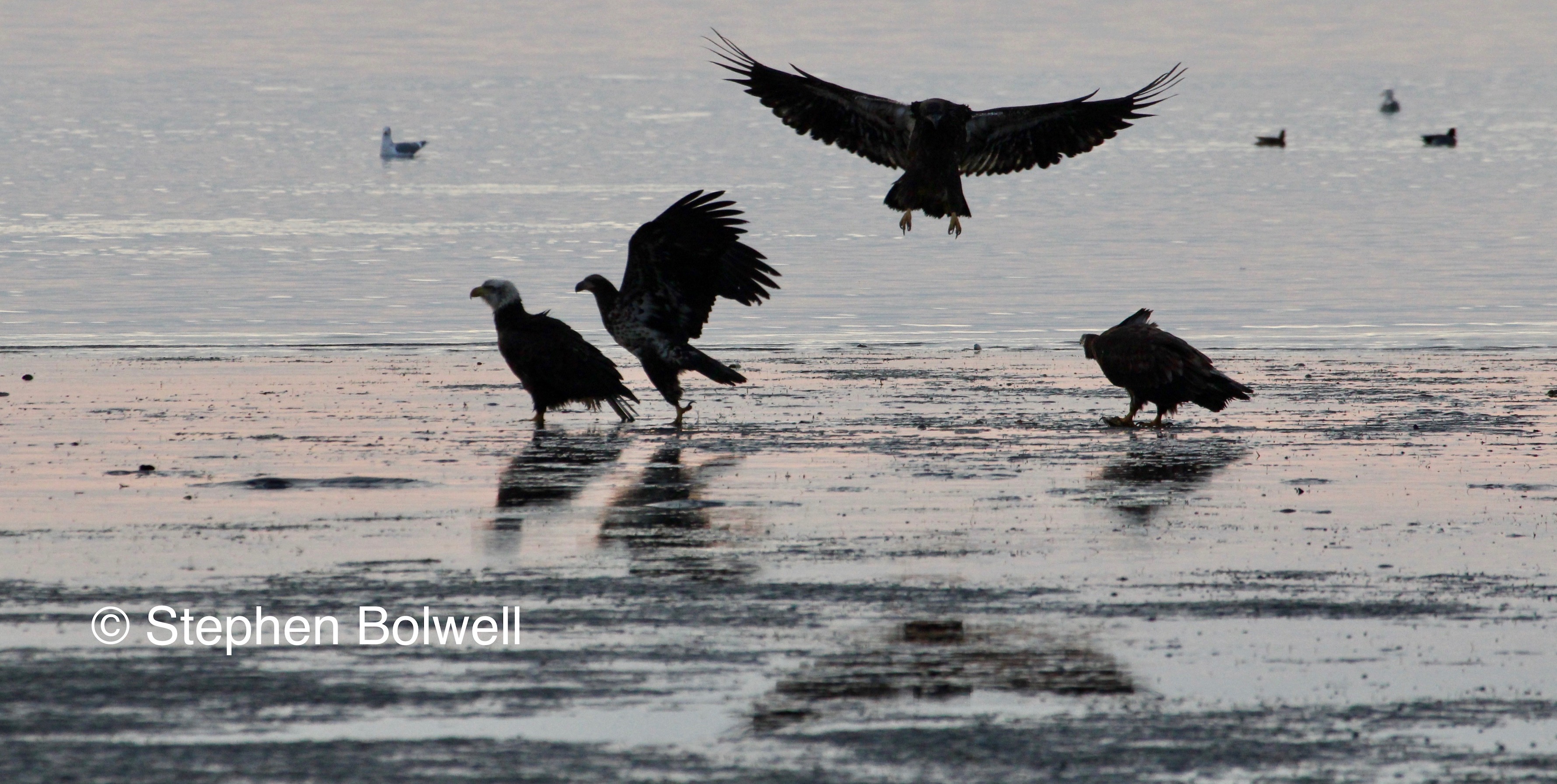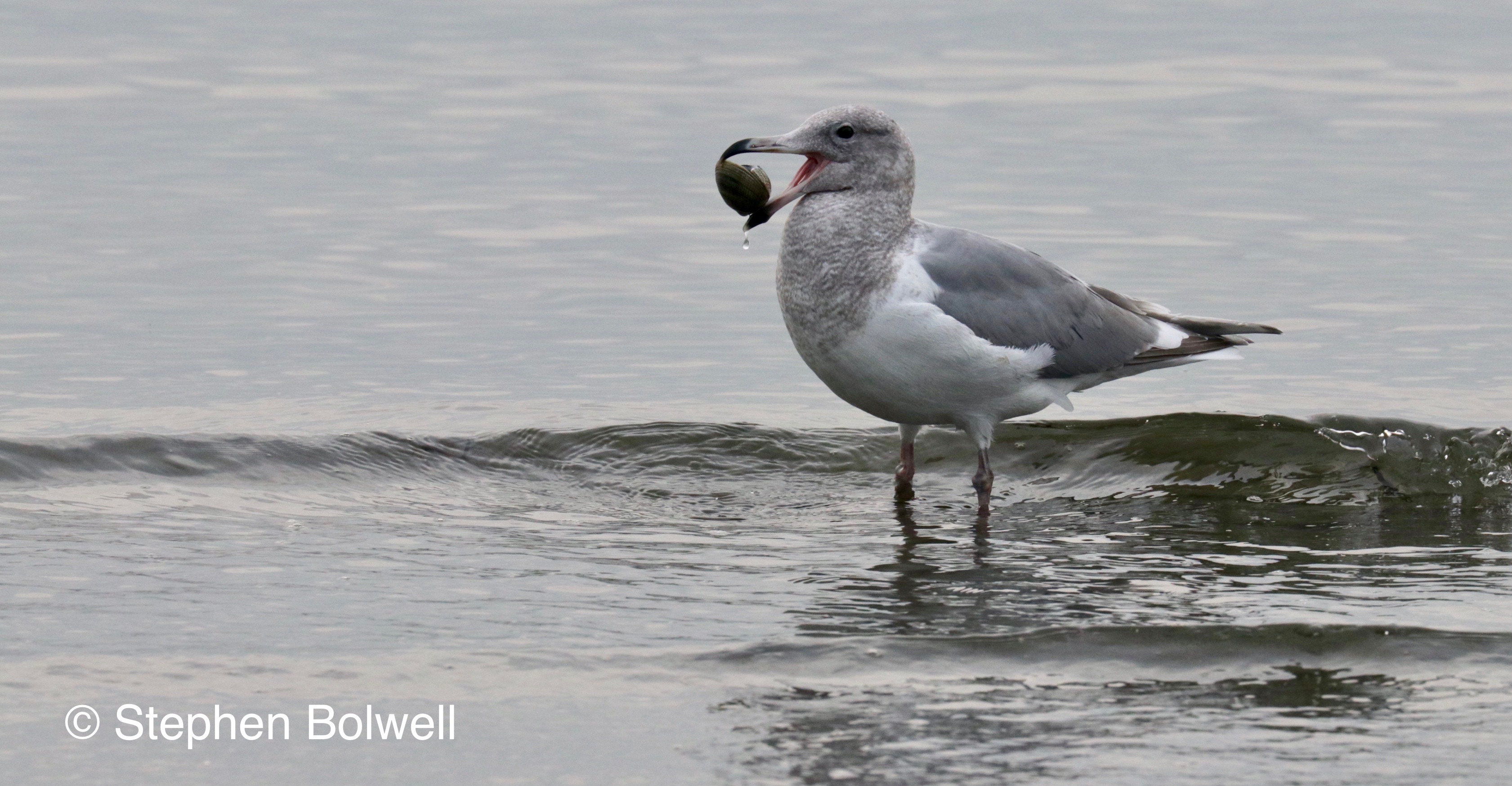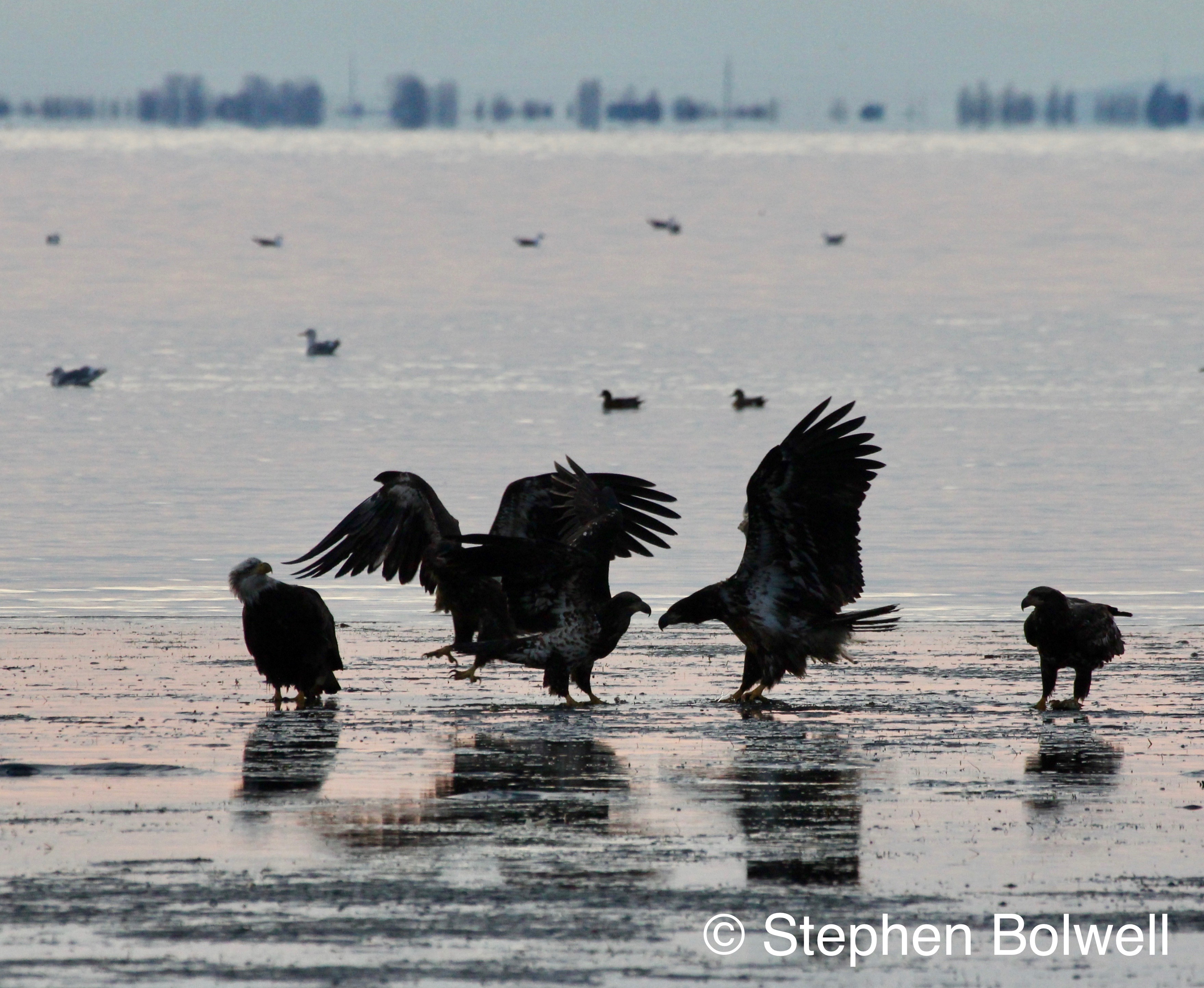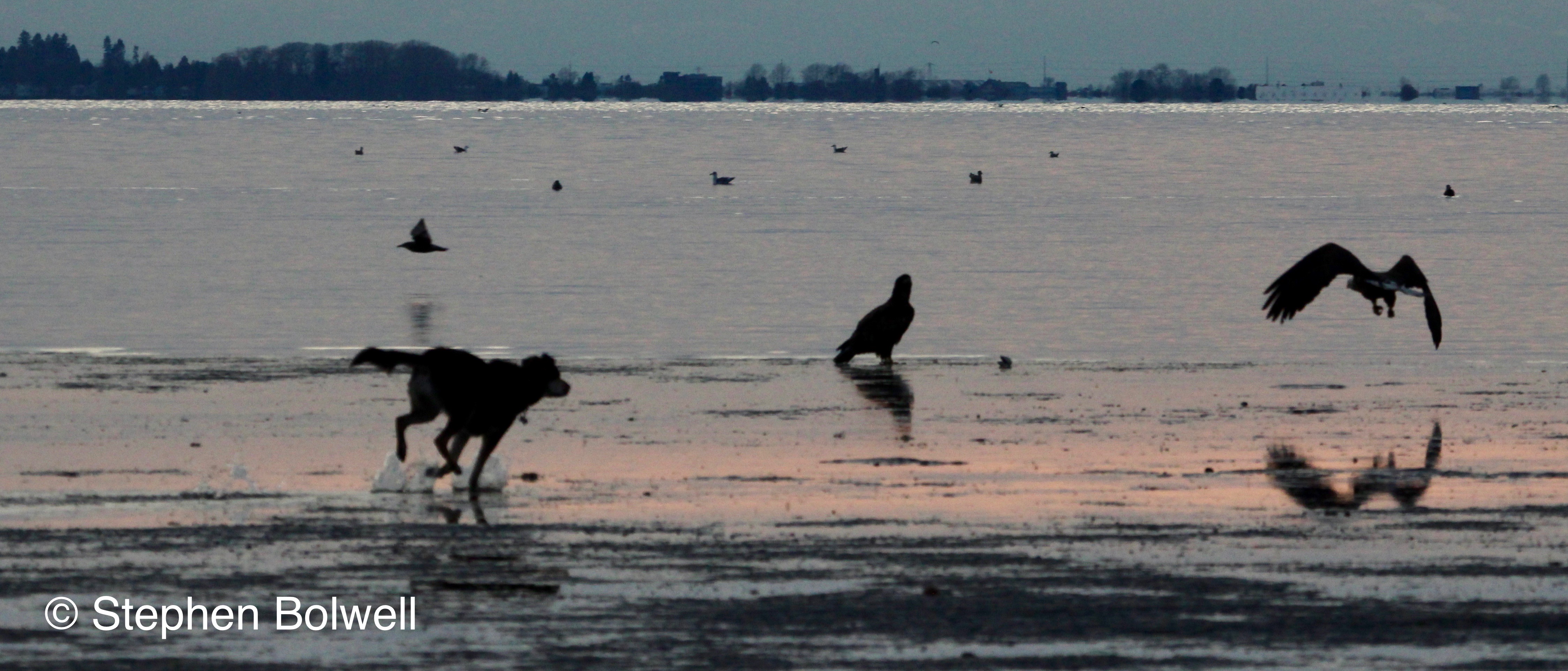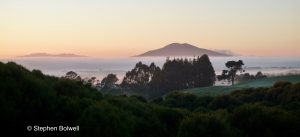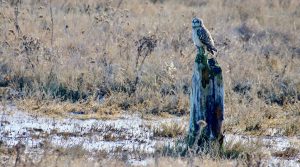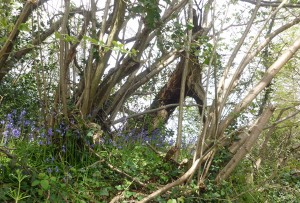I presently live in British Columbia, where the car number plates say ‘Beautiful British Columbia’ – but really, it isn’t like that down on the Lower Mainland where there’s a competition to see how quickly the whole area can be covered with houses; planning isn’t an issue though because there doesn’t seem to be too much of that – it’s just one big urban sprawl of grey and drab cow dung coloured houses, which, more often than not, are oversized for the land that they stand upon – it’s ugly stuff and to add to the nastiness of the burgeoning suburbs there is now a rat problem – these creatures seem to be almost everywhere. None of this to me appears very Canadian, but I come from another place and possibly another time.
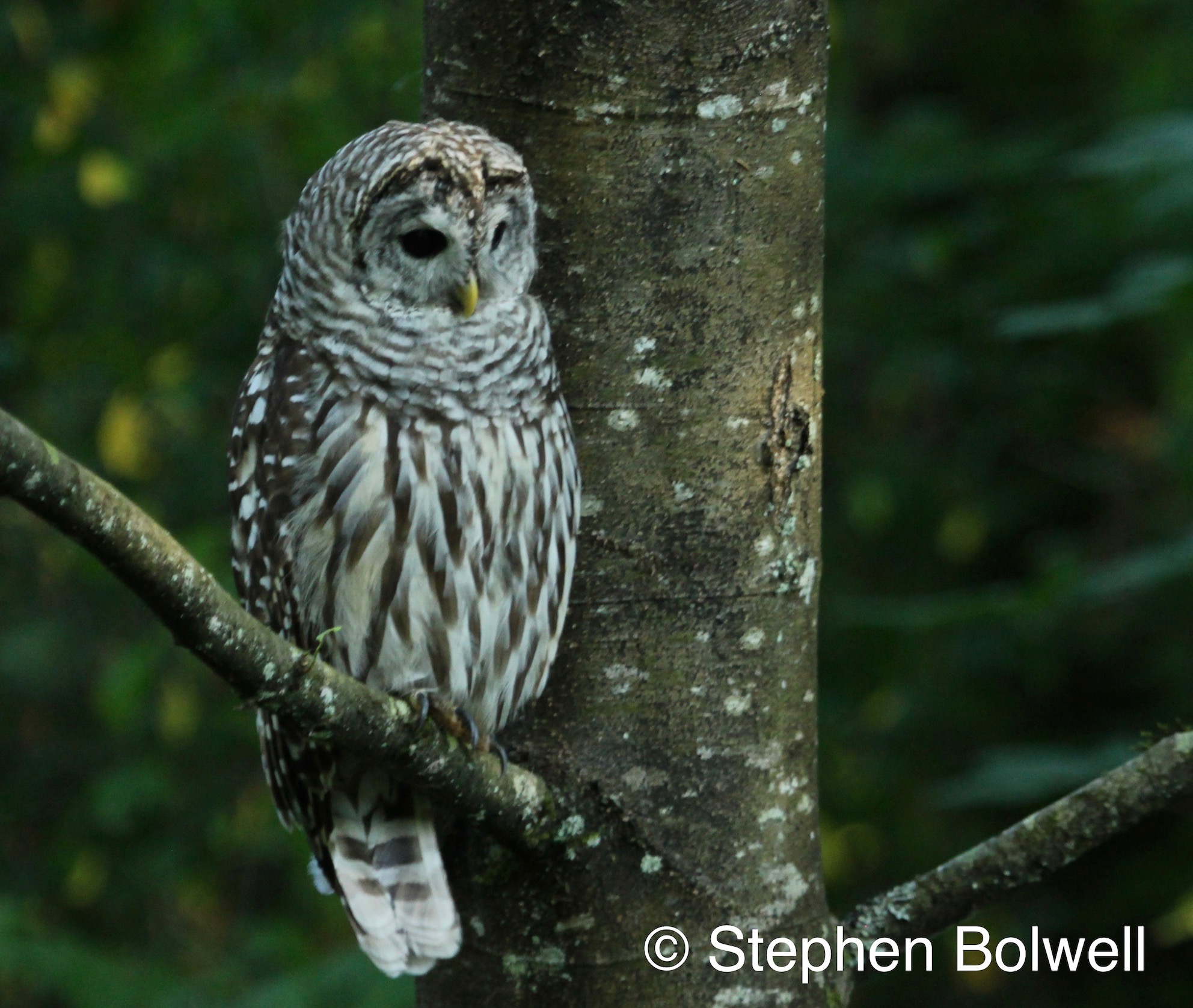
As every inch of wild space becomes filled in with development the bird population has gone into decline and this has been noticeable in just the eight years I have lived here.
The other day, a lady in a neighbouring garden was throwing huge chunks of bread from her balcony to feed the crows, and what they didn’t manage to eat would soon make a very fine supper for the rats.
With fewer natural spaces, it would be difficult not to notice a decrease of wildlife in urban areas. There are fewer coyotes in my area than there once were which is allowing the domestic cat population to rise. Three cats now regularly show up in my garden to hunt the few remaining song birds that come to feed; or they will sit hopefully waiting under the hummingbird feeder…. Rats, crows and cats – each of these (when increased in numbers) are voracious predators of any animals smaller than themselves, and all are well catered for in suburban areas on the Lower Mainland. It’s a depressing situation.
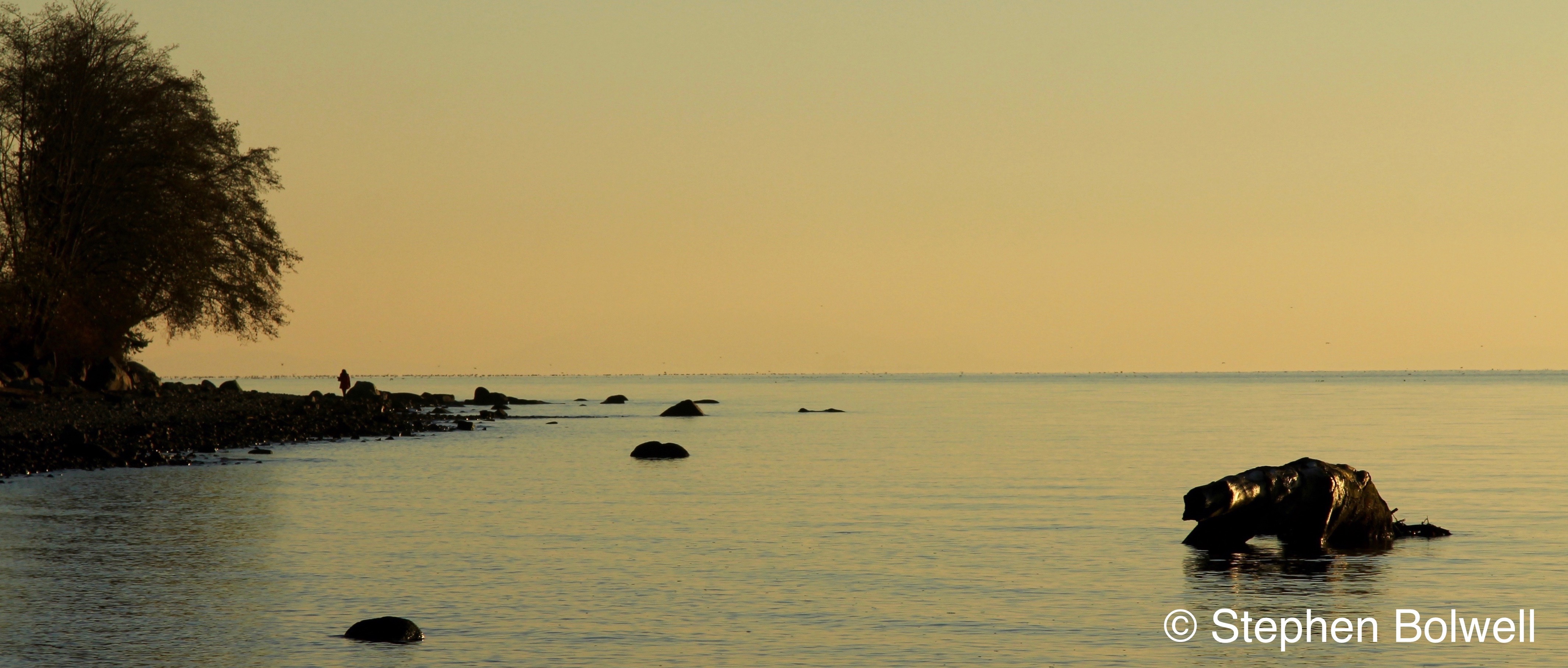
So, what do you do when facing this sadly familiar land-based situation? You go to the beach is what you do, because here the tide comes in and out, making things just a little more difficult for humans to screw up. Mind you, we still do our best: there are often signs up along the front to let people know that the local waters are polluted and seafoods should not be gathered from the shoreline -these are good signs because they discourage people who think the only use for a beach is the collection of free food; and if there is no profit to be made from molluscs on the open market there is a chance that shore birds will be able to feed on their natural food without unnecessary competition.
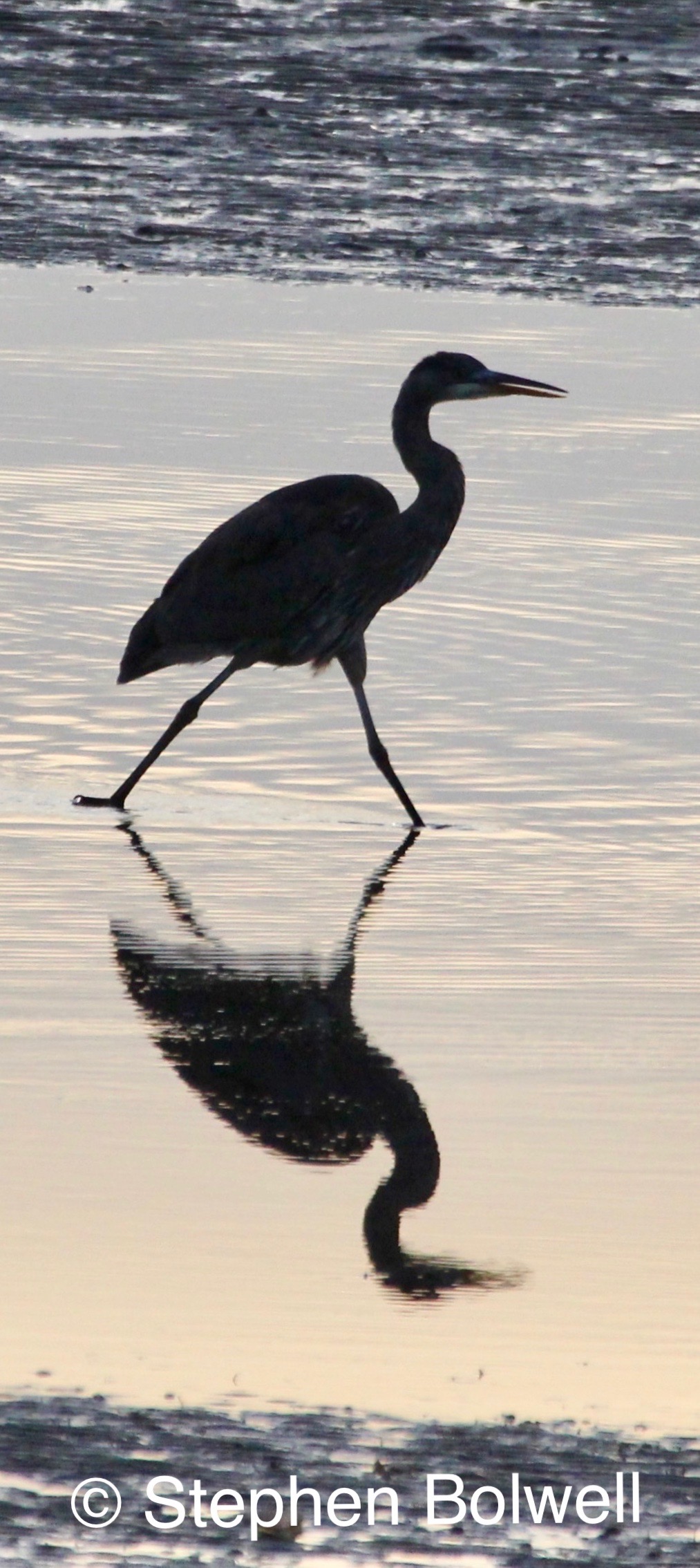 My birthday falls in January, and if the weather is good I’m usually on the beach. My wife, daughter and l usually hang out somewhere on the coastline when our birthdays come around. This year mine arrived on a cool but not excessively cold day – the water was calm, but only a few ducks were bobbing on the water and apart from a single heron there were no other birds to be seen.
My birthday falls in January, and if the weather is good I’m usually on the beach. My wife, daughter and l usually hang out somewhere on the coastline when our birthdays come around. This year mine arrived on a cool but not excessively cold day – the water was calm, but only a few ducks were bobbing on the water and apart from a single heron there were no other birds to be seen.


We went back the day after because the weather was still pleasant and very mild for the time of year, but there was not a single duck to be seen, and on this second outing I was pushed to observe the gulls which are never my first choice for observation, but nevertheless it is interesting to watch any bird that is working the shoreline for molluscs on a rising tide.
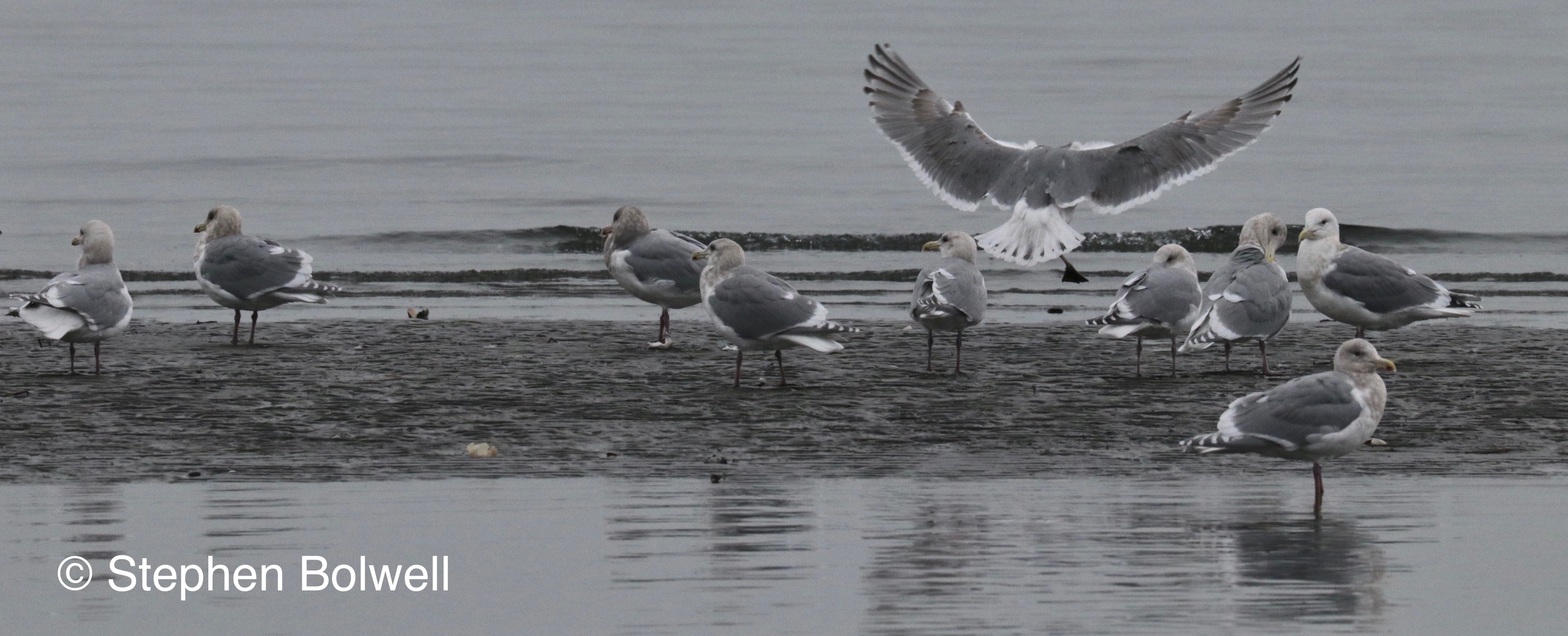
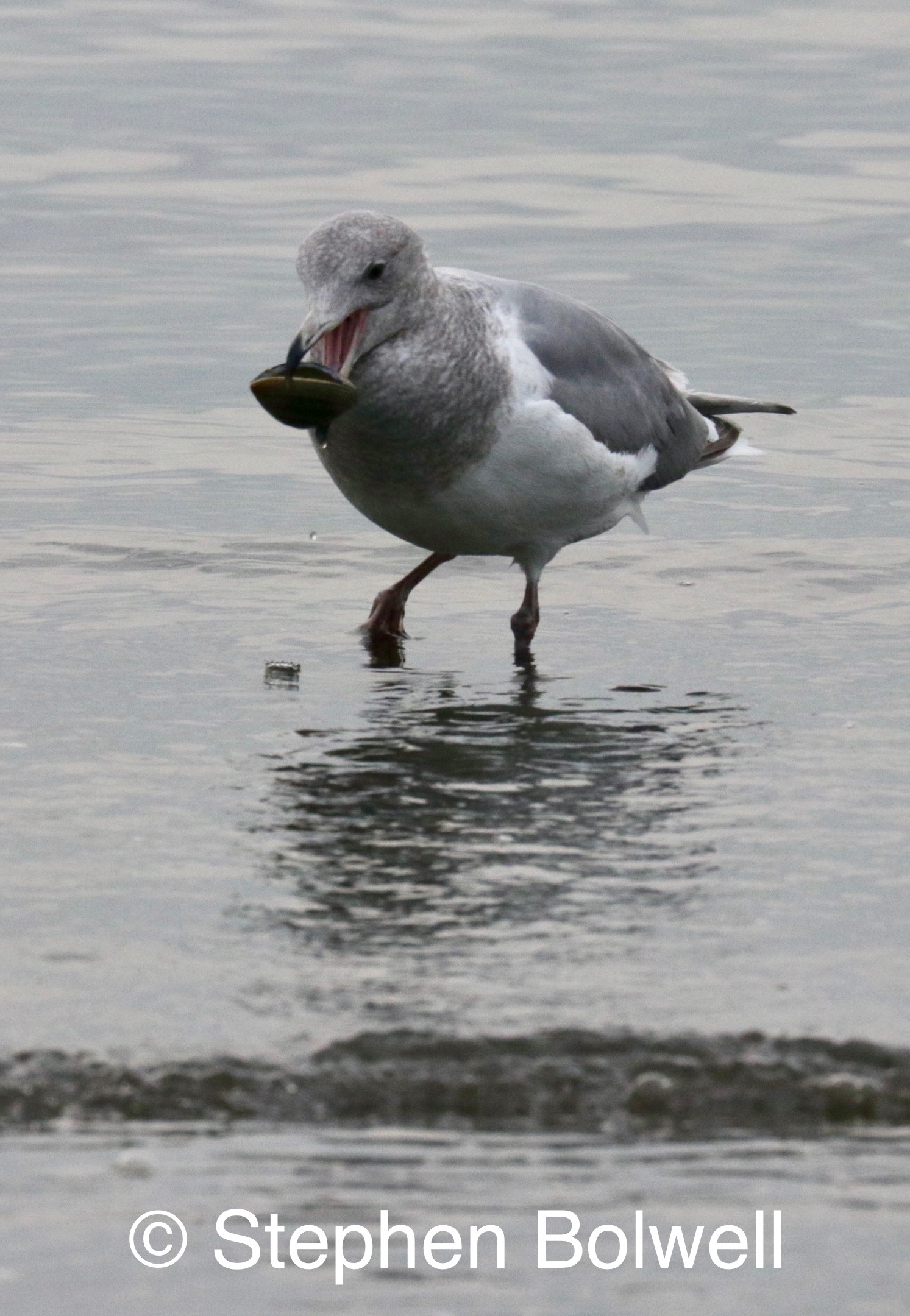 A lot of the time they scavenge along the shore for whatever can be found – easy meat that is past its best: an already broken mussel, or a recently dead crab, but the big prize – if they don’t manage to grab your pizza or ice cream (presently out of season), is a large healthy mollusc stimulated to life when the sea starts to flow in around them.
A lot of the time they scavenge along the shore for whatever can be found – easy meat that is past its best: an already broken mussel, or a recently dead crab, but the big prize – if they don’t manage to grab your pizza or ice cream (presently out of season), is a large healthy mollusc stimulated to life when the sea starts to flow in around them.
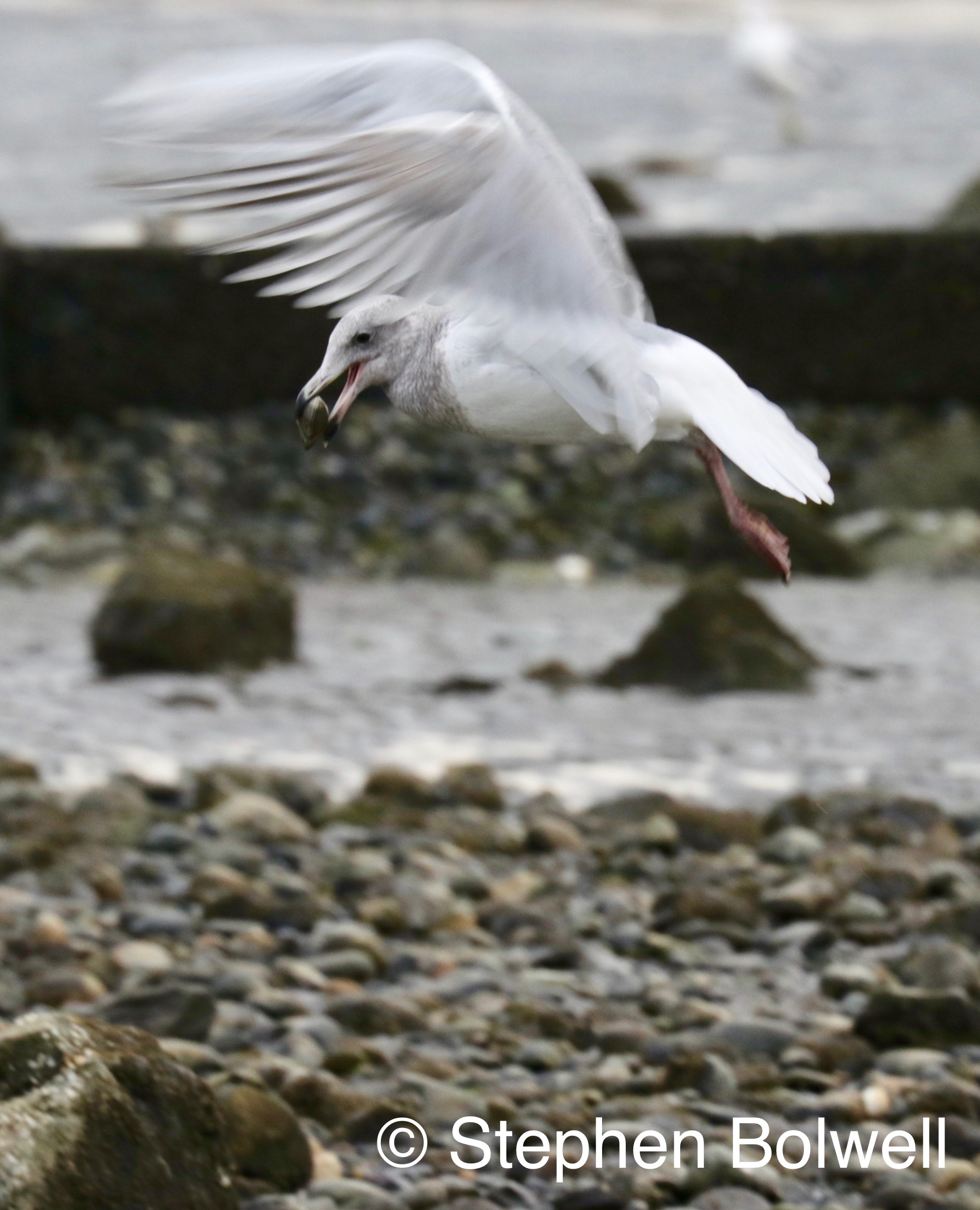 The cleverest gulls have learnt that if they bring their catch up the beach to where the sand ends and the stones begin (although some authorities believe the dropping to be random and is not selected by substrate), they can drop their packed lunch and let the force of gravity do the breaking – this they attempt repeatedly until the shell is smashed. Often it is necessary to drop a shelled creature just once to achieve a result, an activity that works best from a height – say 20 feet or more, but flying high can also be a problem because other gulls will often swoop in more quickly to claim the exposed meal – there are always others loitering on the periphery that haven’t learnt the trick and rely entirely on larceny for their lunch.
The cleverest gulls have learnt that if they bring their catch up the beach to where the sand ends and the stones begin (although some authorities believe the dropping to be random and is not selected by substrate), they can drop their packed lunch and let the force of gravity do the breaking – this they attempt repeatedly until the shell is smashed. Often it is necessary to drop a shelled creature just once to achieve a result, an activity that works best from a height – say 20 feet or more, but flying high can also be a problem because other gulls will often swoop in more quickly to claim the exposed meal – there are always others loitering on the periphery that haven’t learnt the trick and rely entirely on larceny for their lunch.
The gull that operates a lower drop strategy may have to try several times to crack a shell open and in doing so they will expend more energy, but he or she stands a better chance of retrieving a meal before it is grabbed by a competitor because they have remained closer to their bouncing lunch-box. Success in life is all about working the percentages.
There’s a PhD here, ready and waiting for a student of zoology – that is, if it hasn’t already been done. The question is, what percentage of gulls know how to do the gravity trick, and, did they learn it by observing others; or is any part of the behaviour innate – perhaps it is a bit of both. Then there is the interesting question of whether it is more productive to be a clever gull or simply profit by being a thief? To answer such questions by observation and experimentation might also lead to a better understanding of more complicated issues – the evolution of behaviour for example. If only I had three spare years and a grant to take on the challenge.
 Last year I was on the same beach in February when five young bald eagles were feasting off of a rotting fish carcass on the tide line – this too had been a competitive meal, made even more challenging by the arrival of a stupid woman who set her dog loose on the birds with the words, ‘Go and get em.’ The clueless but exuberant dog rushed forward; the eagles nonchalantly rose and the dog wondered where they had gone, this was a dog that couldn’t fly and did not have enough imagination to comprehend that other things might. Once the birds were in the air, it was a case of out of sight out of mind and the dog just ran about sniffing unproductively at the salt wet sand. Had there been a fight – which I was rather hoping for – the dog would have been a goner and the headlines would probably have read: ‘Eagles Attack Dog On Beach’ – Women Heartbroken by Loss of Beloved Pet’. The more prosaic truth might have read, ‘Idiot Woman Encourages Stupid Dog to Chase Eagles’, or ‘Dog Duped by Unruffled Eagles Ability to Fly’… but neither of these made the news.
Last year I was on the same beach in February when five young bald eagles were feasting off of a rotting fish carcass on the tide line – this too had been a competitive meal, made even more challenging by the arrival of a stupid woman who set her dog loose on the birds with the words, ‘Go and get em.’ The clueless but exuberant dog rushed forward; the eagles nonchalantly rose and the dog wondered where they had gone, this was a dog that couldn’t fly and did not have enough imagination to comprehend that other things might. Once the birds were in the air, it was a case of out of sight out of mind and the dog just ran about sniffing unproductively at the salt wet sand. Had there been a fight – which I was rather hoping for – the dog would have been a goner and the headlines would probably have read: ‘Eagles Attack Dog On Beach’ – Women Heartbroken by Loss of Beloved Pet’. The more prosaic truth might have read, ‘Idiot Woman Encourages Stupid Dog to Chase Eagles’, or ‘Dog Duped by Unruffled Eagles Ability to Fly’… but neither of these made the news.
Despite the occasional idiot –
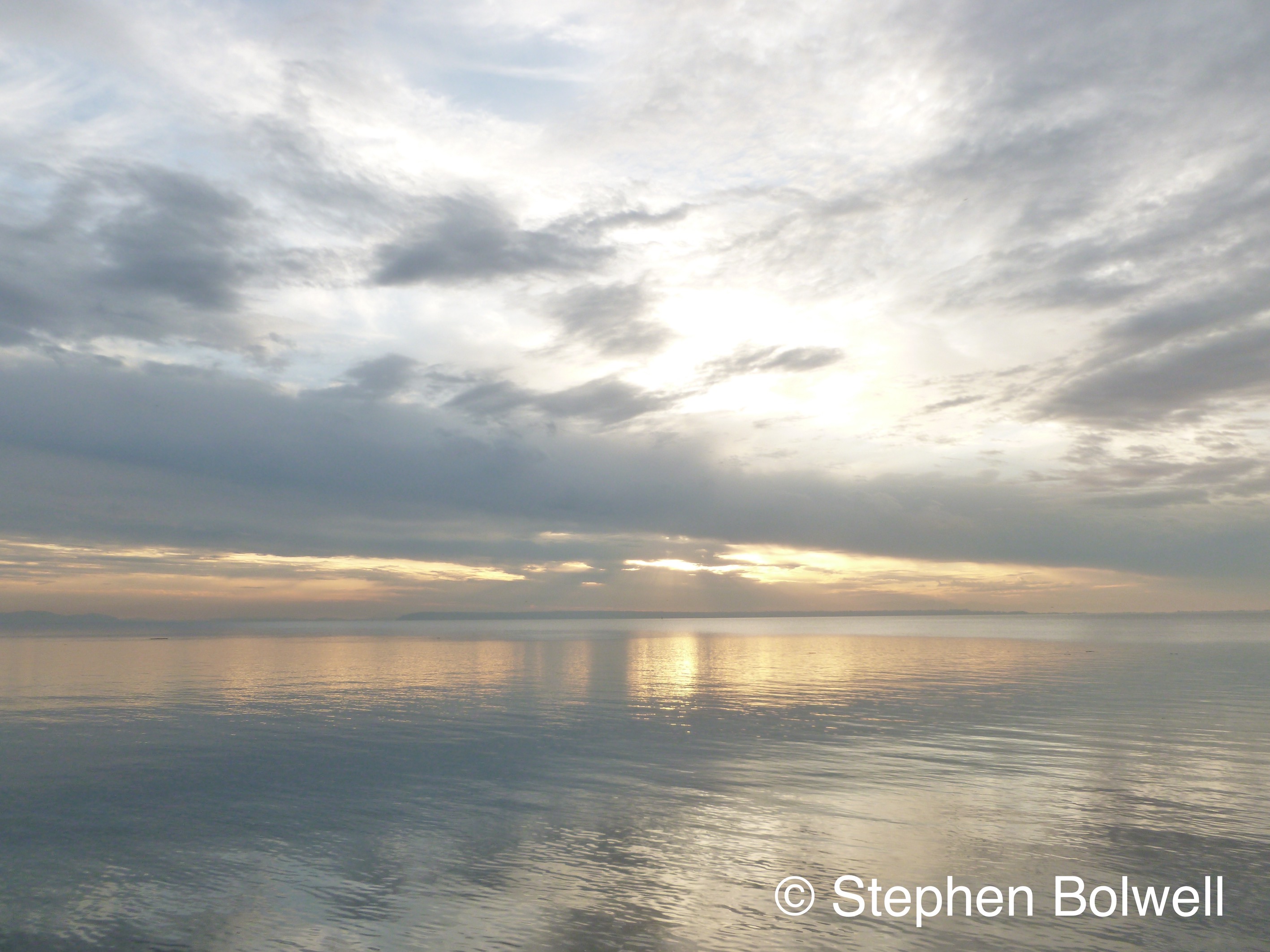 it is a delight to be out there on the beach, away from the urbanity of the rats, the cats and the dog poo, standing at the point where a land that has lost all sense of the natural world meets the wild; and in the calm reflection of a setting sun, this is a wonderful place to be.
it is a delight to be out there on the beach, away from the urbanity of the rats, the cats and the dog poo, standing at the point where a land that has lost all sense of the natural world meets the wild; and in the calm reflection of a setting sun, this is a wonderful place to be.
